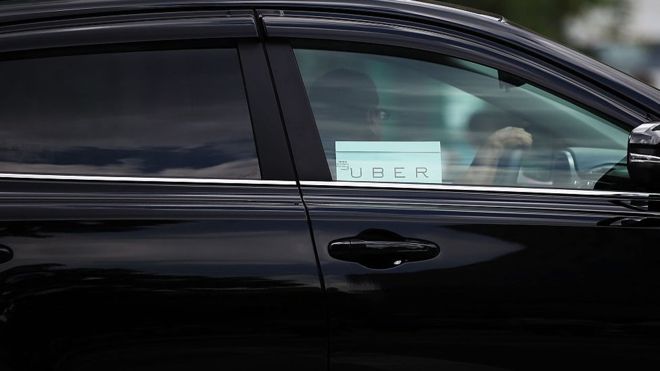
Ride-sharing firms Uber and Lyft have stopped operating in Austin, Texas after proposals to let them self-regulate their drivers were rejected.
The companies had sought to overturn city council regulations which meant drivers had to pass fingerprint-based background checks before they could operate.
However, when put to a public vote, the regulations, introduced in December 2015, were upheld.
Both firms expressed regret.
The rules were part of a package of regulations which put Lyft and Uber in line with traditional taxi operators.
According to US broadcaster NPR, Uber spent a reported $8m (£5.5m) on a campaign proposing self-regulation instead – known as Proposal One.
However 55% of the 87,212 votes received were against it.
“Disappointment does not begin to describe how we feel about shutting down operations in Austin,” said Chris Nakutis, General Manager of Uber Austin.
“We hope the city council will reconsider their ordinance so we can work together to make the streets of Austin a safer place for everyone.”
At the time of writing, Uber is still displaying fare estimates for rides in the city.
Lyft said the rules “don’t allow true ride-sharing to operate”.
The company added: “Instead, they make it harder for part-time drivers, the heart of Lyft’s peer-to-peer model, to get on the road and harder for passengers to get a ride.”
“Ultimately our goal is to not keep any particular company here or not here,” said Austin Mayor Steve Adler during initial discussions about the new regulations,reported the Texas Tribune.
However, many people took to social media to point out that it was the firms’ decision to leave.
“Not happy that Prop 1 in Austin failed, but less happy that Uber & Lyft put so many drivers out of work with less than 48 hours notice,” tweeted Burnie Burns, founder of comedy and gaming community Rooster Teeth.
Ben Wear, transport reporter at the American-Statesman, agreed.
“Prop 1’s defeat wouldn’t mandate that Uber or Lyft stop operating in Austin. That is entirely up to the companies,” he tweeted.
